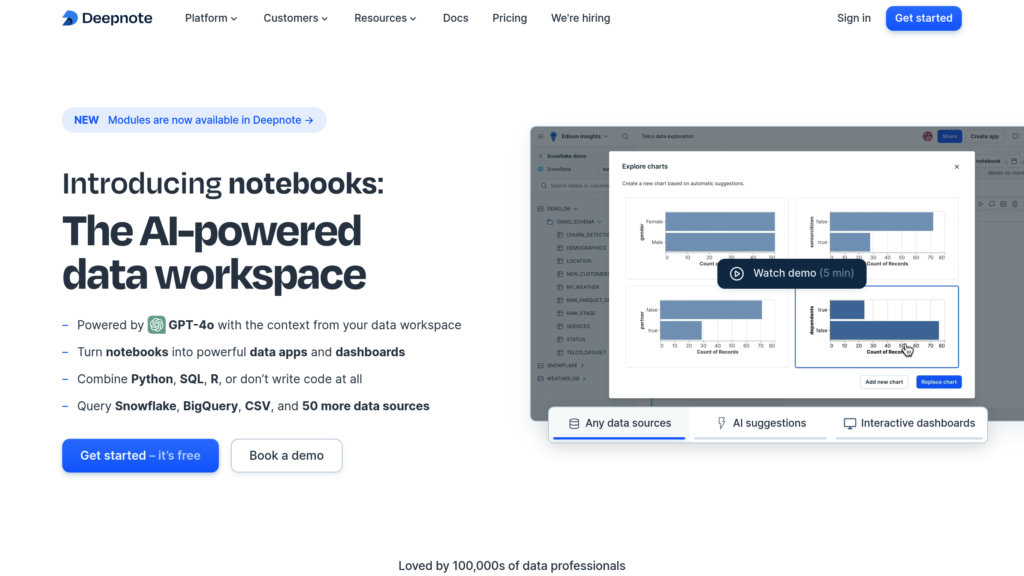Deepnote
Cloud data science notebook with real-time collaboration and smart coding
Introduction
Deepnote represents the next generation of data science platforms, specifically engineered to boost collaborative efficiency and output for data-focused teams. This cloud-based notebook environment natively supports Python, SQL, and R, allowing professionals to interactively explore, analyze, and present data insights. The platform incorporates context-sensitive AI assistance that generates, clarifies, and debugs code, democratizing data science for beginners while empowering experts. With live collaborative editing, version history tracking, and modular reusable workflow components, Deepnote optimizes team synchronization and project repeatability. Furthermore, it enables the creation of dynamic data applications and dashboards directly from notebooks, effectively connecting analytical processes with stakeholder presentations.
Key Features
Real-Time Team Collaboration: Multiple team members can co-edit notebooks with instantaneous updates, threaded comments, and version management, significantly enhancing group productivity.
Intelligent Code Assistance: Project-aware artificial intelligence provides code generation, explanation, and debugging capabilities for Python, SQL, and R, speeding up development while minimizing mistakes.
Extensive Data Connectivity: Built-in integration with 50+ prevalent data platforms including Snowflake, BigQuery, and PostgreSQL facilitates immediate connection to dynamic datasets.
Reusable Workflow Modules: Teams can create standardized, shareable components for code segments, data processing steps, and visualization templates across multiple initiatives.
Interactive Dashboard Creation: Transform notebooks into customizable, publishable dashboards and analytical reports complete with interactive elements and input parameters.
Instant Cloud Workspace: Browser-accessible platform eliminates local software setup and environment configuration, allowing users to commence work without delay.
Use Cases
Team-Based Data Analysis: Groups can simultaneously investigate, process, and visualize datasets with live collaboration, increasing project visibility and execution velocity.
Academic Data Education: Educators and learners utilize shared workspaces for coursework distribution, submission management, and classroom coordination.
ML Model Development: Data scientists construct, validate, and implement machine learning models using integrated utilities and reproducible workflow components.
Corporate Intelligence Reporting: Develop explorable reports and dashboards that business stakeholders can navigate without programming expertise.
Data Processing Pipelines: Modular workflow systems support the creation of sustainable, repeatable data transformation and ETL processes.
